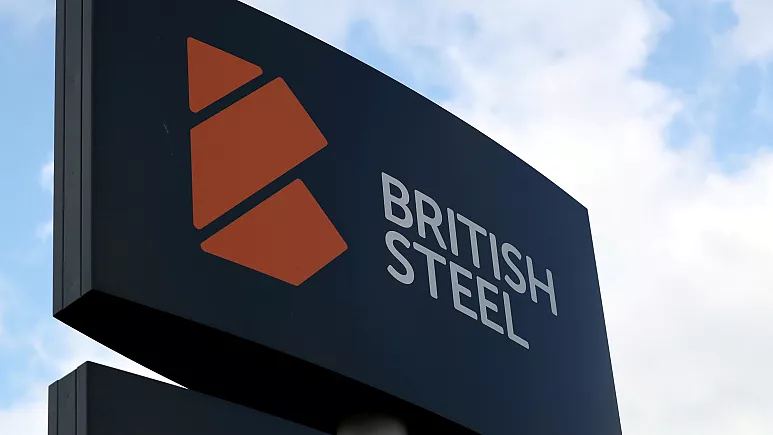Union bosses say ‘2,000 jobs are at risk’ but the Chinese owners will build two new electric arc furnaces aiming to overcome profitability issues with the British giant it took over in 2020 after it went bust
Chinese-owned British Steel revealed on Monday (Nov 6) its decarbonisation plan means the blast furnaces in Scunthorpe face closure to be replaced by could result in the loss of 2,000 jobs in Scunthorpe, according to unions.
The Jingye Group, which took over British Steel in 2020, confirmed it wanted to shut down the blast furnaces replacing them with two cheaper, greener electric arc furnaces (EAFs) – one in Scunthorpe and the other on Teesside, where it has two existing mills.
The company explained its plans were aimed at making UK-produced steel competitive again and creating a sustainable future for the business. It says that its plans would reduce British Steel’s carbon dioxide emissions by 75% explaining EAFs can run on zero-carbon electricity.
It would not confirm potential job losses but the figure was released by unions who are set to begin talks although the company has long argued that high energy and labour costs are a barrier to profitability.
The closure and building of the new green plants is estimated to cost £1.25bn (US$1.53bn) but remains subject to a government grant, understood to be worth £300m (US$368m). The furnaces will be completed by 2025 but the exisiting facilities would remain open until they open.
However, steelworkers’ trade union Community has described the plans as “deeply concerning”.Community believes the move could result in between 1,500 and 2,000 job losses, predominantly in Scunthorpe.
Citing Tata Steel’s proposal to close blast furnaces at Port Talbot in Wales, the union told the BBC that the Scunthorpe plans would end the UK’s ability to produce “primary steel products”, meaning it would instead have to rely on imports.
General secretary Roy Rickhuss said in the BBC interview: “We are deeply concerned by British Steel’s plans for an EAF-only approach at Scunthorpe and Teesside, and it is vital a meaningful consultation takes place to assess all the options to secure the future of steelmaking.
“The plans that British Steel has announced, combined with Tata Steel’s plans, would leave the UK dangerously exposed to international markets.”
Blast furnaces use coke to reduce iron ore, whereas electric arc furnaces melt down scrap or recycled steel.
Mr Rickhuss said Community believes blast furnaces “continue to be vital in any responsible transition to green steelmaking”.
He said: “With the right commitment from all stakeholders we can deliver a just transition [to greener steel] that saves our planet, saves our jobs, and saves our steel.”
Community had continually highlighted how an EAF-only approach was the wrong solution to decarbonising the steel industry, Mr Rickhuss said.
He said: “Such an approach would require the import of virgin steel to supplement scrap steel used in furnaces, meaning that carbon emissions would be exported to heavy-polluting countries and the industry would no longer be self-sufficient in the UK. This is dangerous both for the national economy and security.”
Read more on this story on the BBC news website HERE
Read more on this story at the Financial Times HERE
Return to Decarbonisation News Index HERE





